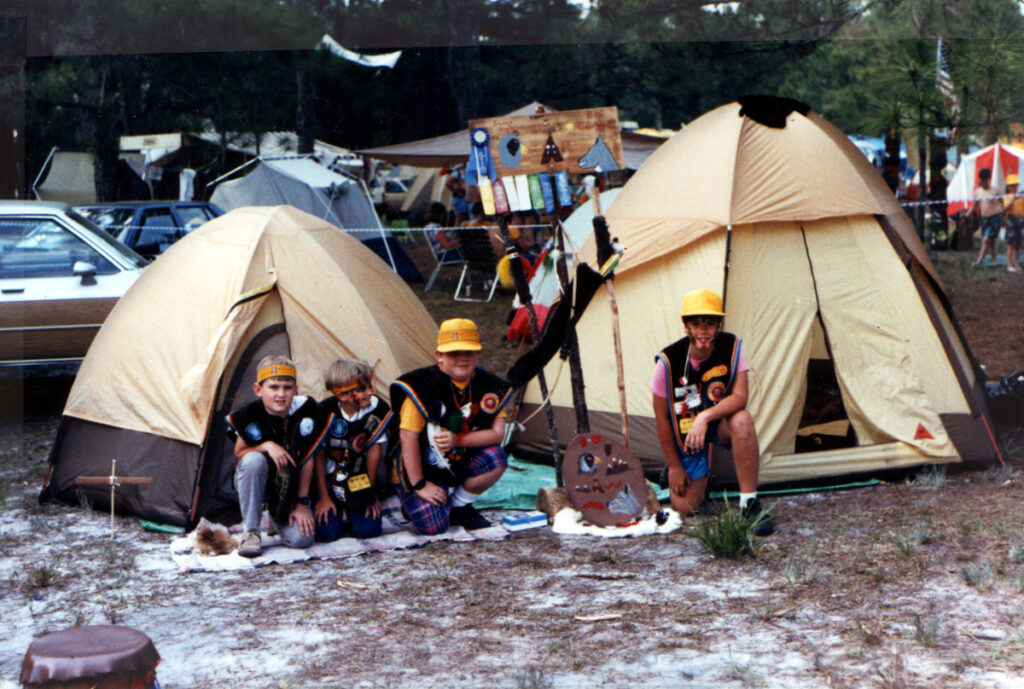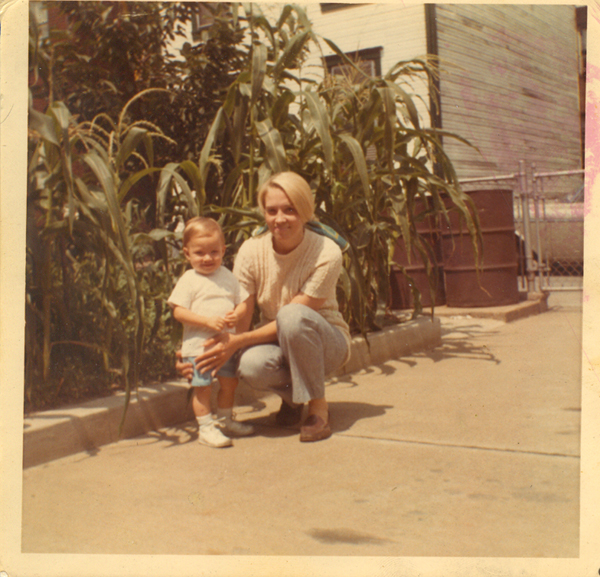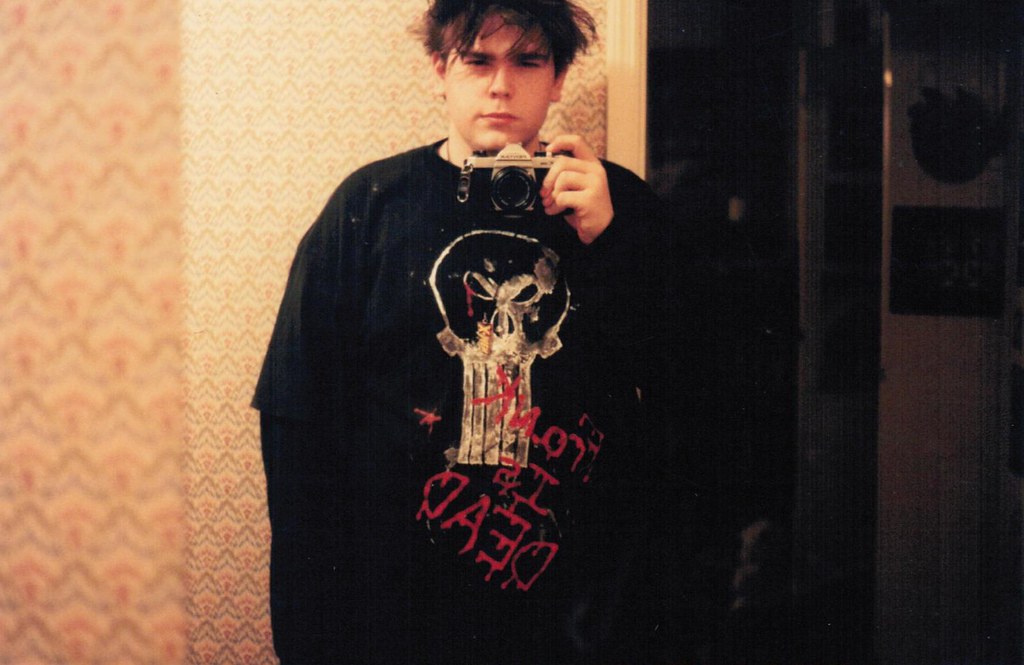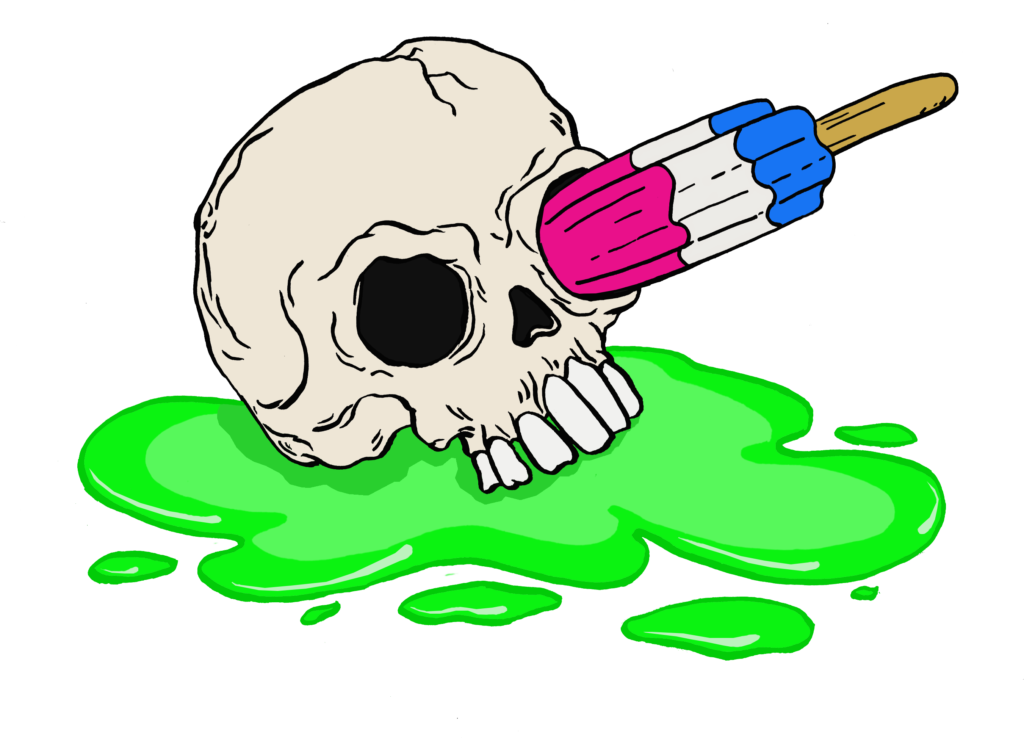In Hua Hsu’s poignant memoir Stay True, he brings up this idea of the harmony of experience as it pertains to loving a song, in his specific case, the Beach Boys God Only Knows from their masterwork Pet Sounds. Hsu describes the idea that as we’re introduced to a piece of music and then we listen to it repeatedly over a lifetime, we continuously attach our own experiences to the song, layering them until they become an encompassing and complicated attachment that transcends the work itself. As he was listening to this beloved song deconstructed into its various components (separated tracks of the instrumentation, the vocal harmony, or variations with different styles and tempos), he found he wasn’t connecting with the pieces as much as the whole, the original that had been a part of his life for awhile at the time. He comments that the pieces lack that layering of associated experiences, and it gave me pause.
I’ve written a lot about my personal nostalgia in life, and I’ve taken pains to acknowledge that often times the sum experience, which is really a multitude of experiences in our cacophony of memory, tends to color our feelings on all of the individual little things. So I think I partially grasped the idea Hsu is driving at. There are so many aspects of my childhood that I’m fond of, that this overall fondness tends to make me nostalgic for all of it. All of these experiences layer together to form a nebulous memory and when I pick a specific aspect or a piece of pop culture, my initial reaction is comfort and love, overriding my more logical feelings for the actual thing. For instance, when I think back to my time in the Central Florida chapter of the Indian Guides, I get a warm, fuzzy feeling, like warmer and fuzzier than the fake bearskin vests we wore to meetings and on camping trips. When I see the insignia patches, headbands, or the photos my father took of our campsites and activities, I can’t help but be overcome with happiness and a yearning to somehow revisit this time.

Me in the purple plaid surf shorts wanting to be at home watching cartoons
But my logical mind, cold and unaffected by nostalgia, tells a completely different story. Factually speaking, I hated almost every single second of my time in the Guides. Camping was a horror show filled with drunk dads, giant spiders invading our tents, tipping over canoes (the campers already seated) when trying to get in, and my father heckling me in front of my friends. I was an inside kid being forced to spend my weekends roughing it in the muggy, sandy backwoods of Florida, with no access to books, comics, or cartoons. I dreaded those weekends and did my best to put on a happy face for my father who was having the time of his life. He was the guy who hiked down into the Grand Canyon for a two-week adventure with friends in his 20s. He was the guy who took diving lessons and ended up shooting himself in his ocular cavity with a speargun never allowing himself to close his left eye all the way. He had that macho Hemingway attitude and gleefully ran with the bulls while in Spain on a business trip in his 40s. Indian Guides was his way of trying to pass down that love to me, and at the time I was not there for it in the least. So the fact that thousand other experiences can lay on top of this one and soften my memory is fascinating.
Though this dichotomy of memory is insane, I suppose it’s the mind’s way of protecting our actual sanity. I’m not sure how I’d be able to function if I held onto every single grievance that I’ve accumulated over a lifetime. But there’s something about this harmonization that is amazing when it’s applied to specific instances of digesting pop culture.More to Hsu’s point, and what has really given me pause to consider are the things that I hold beyond dear, certain movies, television show theme songs or packaged snacks that I strongly associate with my mother and are of a comfort to me almost as strong as her presence was before she passed away. There were a few periods during the early 90s when my family was going through an enormous amount of stress. The first was during our move from Florida to New Hampshire when we were not only relocating across country, but simultaneously leaving part of the family behind (my sister) while also geographically becoming way more available to a segment of the extended family (my sister’s extremely nosy aunt on her father’s side), both of which my mother dreaded. The second was after my father lost his high-paying job a couple years later and we ended up losing our house and cramming into a small apartment in a nearby city.
When we moved up North, my mother began to try and ritualistically cope with all of the change and her loneliness of leaving my sister behind. My mother and sister were extremely close for most of their lives, arguably more so than the typically mother/daughter relationships because of the hardships they endured when my sister was about four or five years old. Way before I came along, my mother had married her high school sweetheart Scott Nichols, and the two moved from Bradford,Pennsylvania to Pittsburgh where Scott was towards the end of his time in medical school and on the cusp of starting his residency. In 1969, while he was in college and my mother was working to help pay for school, my sister was born. I don’t know the whole story as my mother was pretty tight lipped about her first husband, but Scott was apparently very unhappy and always stressed out and sometime in summer of 1973 he purposely overdosed, committing suicide, though it was treated as an accident. My sister became my mother’s whole world at that point and they bonded over their anger and grief, dealing with stuff that no child should have to suffer through. So when my sister made the decision to remain in Florida to finish up her studies at UCF, my mother took the separation badly.

My Sister and Mother a couple of years before her father passed away
My mom was always an odd bird in terms of how she went about her day, napping for most of the day while my father was at work, and then waking in the afternoon to do chores and make dinner, before retiring to the bedroom again in the early evening. Then she’d wake up around 10:00 or 11:00 at night as we’d be going to bed, staying up until 4:00 or 5:00 in the morning, watching TV or reading through her collection of Vanity Fair magazines that she had tucked into a wicker basket next to the television. But during that long winter of early 1990, and on into spring, my mother began to obsessively watch the same movie every single night. Around midnight my mom would grab a bowl of Cheez-It crackers and she’d curl up on the floor with a blanket and watch Ron Howard’s 1988 awkward fantasy Willow. The copy we had was taped off of HBO sometime towards the end of 1989. I was the only one in the family that even seemed to like the movie, but my mom had taped it specifically for my sister who had a huge crush on Val Kilmer, comically so. To my mother’s chagrin, my sister had refused to watch the movie with her, and now that they were 1,300 miles apart my mom would put in the tape every night. It must have been her way of spending a couple hours with my sister every day, but pretty soon after she started this ritual I found myself sneaking down and sitting at the foot of the stairs where I could watch the film and she wouldn’t notice that I wasn’t in bed. Over the months I started outright joining my mother, fighting her for any burnt Cheez-It we found in the bowl and watching and re-watching Willow to a point where I knew that film backwards and forwards.
I personally must have watched the movie a hundred times over that winter of 1990, and the taped-off-TV copy we had, and all of it’s eccentricities became burned into my psyche. The hand-written label in my mother’s perfect, swooping cursive in blue pen on the makeshift, masking tape label, the black Scotch brand VHS tape and cover emblazoned with the weird rainbow sphere floating above what almost looks like the doorway of Seth Brundle’s teleportation chamber in Cronenberg’s remake of The Fly. The way my mom missed the first two minutes of the opening of the film and it began with an awful static hiss during the credits when the midwife is escaping Bavmorda’s castle. At the age of 13, I also hadn’t quite developed my cynical side yet, so no matter how many times I would sneak down and watch the flick, I was never bored with it.
Some days were better than others that winter, and looking back, I piled a lot of my own ups and downs onto that movie. There were days when I was absolutely wrecked because I missed my best friend Peanut (his name was Scott, but everybody called him Peanut) and I’d crumple into a heap next to my my mother on the floor holding back tears as Willow began, two minutes into the film. There were days when I was elated because I found another kid my age down the street from us who was into the 89 Batman movie Topps trading cards even more than I was and he was willing to trade a bunch of his Series II cards for some of my comic book doubles I’d acquired. That night I probably didn’t even pay attention to the twenty minutes of Willow, though by minute 28 (26 on our VHS counter) I was inevitably hooked as we get our first glimpse of Madmartigan, and truth be told, I think I had a little crush on Kilmer as well. All these different experiences, all of the moments in my own life that I layered on top of watching Willow, made that movie into something new, something that the filmmakers never could have imagined. It’s sublime and perfect in a way that makes no logical sense to anyone but me and my mother.
Then, spring came and one day my mom stopped popping the tape into the VCR. There was no discussion or catalyst for her decision. She just didn’t need that specific comfort anymore and from 1990 until 2006 I didn’t revisit the film either. At some point in the late 90s I picked up an official copy on VHS,which I traded it in for the DVD that was released in 2001, and eventually upgraded to the Blu-ray/DVD combo that was released in 2013. But there was no urgency to watch the film, because in my mind the film had ceased to be just a a piece of entertainment, it was therapy. What’s weird, is that around the time that the blu-ray was released, I asked my mother about our winter of watching the movie and she had absolutely no recollection of binging the movie. In fact, she not only forgot these cinematic comfort sessions, she also ragged on the film and wondered why I’d picked up a DVD copy for her a few years earlier. I had thought I was buying her a thoughtful gift, a souvenir of our communal coping, but I suppose we absorb these experiences differently.
A few years after our Willow sessions, we found ourselves in a new life-altering situation in another state as my father was laid off of his long time job selling semiconductors for the Siliconix corporation at the end of 1992. We’d ended up only staying in Massachusetts/New Hampshire area for about 10 9 months before we were forced by my father’s company to move back down south to the Atlanta suburbs. My father, ever the optimist, made a lot of bad financial choices in the months that followed the layoff thinking that he’s be back in the game at another firm, and instead of immediately finding temporary work to make ends meet, decided to cash in all of the Siliconix stock he’d earned as profit sharing, as well as prematurely collecting on his retirement account. That money carried us through half a year of mortgage and car payments, utility bills and groceries, but he didn’t find another job in the industry that year. In fact, he ended up selling appliances at Circuit City by the spring of 1993 and by the summer we lost the house. Because the movie up to Nashua from Florida, and then back down to Georgia had happened so quickly, my parents had taken a bath on the house up north in order to sell it fast enough to make the move. When we moved into the house in Lawrenceville my folks ended up borrowing $20k from Siliconix as earnest money, and when we lost the house my parents barely pulled out enough from the sale to cover that loan. We were flat broke with just enough money for first and last month’s rent on a tiny apartment in the neighboring city of Duluth in the summer of 1993.

Picture of the Don’t Tell Her it’s Me fan in our tiny apartment
The stress of this job loss and move was hard on our family. I was 16 at the time, but my parents refused to sign the waiver I’d need in order to get a part time job after school, while my father was working retail and making a third of what he’s been making in the semiconductor industry. My mother also went back to work as a secretary to make ends meet, which she abhorred, and their marriage was never the same afterwards. My father, though ill-advised in some of the financial decisions he was making, was doing his best to keep the family afloat, but no matter what he did my mother never forgave him for ending her tenure as a working girl. It wasn’t long before every night became a series of venom flinging screaming matches, usually with me in the middle trying to play referee. It was around this time that my mother discovered the much maligned and quickly forgotten 1990 romantic comedy Don’t Tell Her It’s Me starring Steve Guttenberg, Shelly Long, and Jami Gertz. The film follows Guttenberg as a cancer-surviving cartoonist who is trying to turn his life around with the help of his rich romance novelist sister (played by Long.) She helps train him, getting him in shape and then crafts a wild persona for him, as a long-haired Kiwi biker, a drifter with a heart of gold, in order to set him up with a reporter who he has a crush on. The film is insane and should have been nominated for a slew of Golden Raspberry awards. But something in that initial viewing clicked for my mother and she ended up taping it off of HBO late one night and before I knew it, we were watching the flick nightly, just like Willow. In fact, this part of the anecdote plays almost exactly like our Willow winter, complete with bowls of Cheez-Its, though by this point my mother was spreading them out on a baking sheet to brown them all a bit so that we wouldn’t be fighting over the good ones.
At 16 I was fully into my jaded teenager phase, but something weird happened with this film as it melded with my day to day life. Part of why I was staying up late and watching this with my mom was because it was good to hear her laughing at all the zany stuff, and after day of hearing my folks screaming at each other, it was needed. But there were threads in this silly movie that I began to relate to. At the beginning of the film, Guttenberg having just beat cancer, was bald and a schlub in sweatpants. He was sad and desperate for affection, and I saw a part of myself in him. I was the husky kid that kept asking our girls and getting the most trite and cliched responses of not wanting to ruin friendships, or the one girl who said she had to wash her hair all weekend. I was at my wits end and frankly, if someone were willing to take the time to give me romance novel lessons I might have taken them up on it.
This marathon of horrible New Zealand accents, zany pratfall hi-jinks, and awkward costume changes lasted through the entire summer of 1993 before abruptly ending as my junior year of high school was beginning that September. Again, this film is beyond nostalgic for me, it’s become a part of my being in a weird way that I would never have imagined. There are so many disparate memories attached and associated with that film, so many screaming matches, rejections, laughing fits, eye-rolling, and time spent coped up with my family in a small space. During the days, to keep myself busy I go through my archive of magazines and trash comics to cut out ads and pictures that I wallpapered my room in. Every possible are of blank wall space and the ceiling, was covered with imagery from Vanity Fair, the New Mutants, Entertainment Weekly, and Wizard Magazine. And every night I’d slink out of my cocoon and watch Don’t Tell Her it’s Me with my mom. I haven’t revisited it since that summer in 1993, but I think about it all the time. It’s not even a film I unconsciously quote, but at quiet moments when I miss my mom, what flashes in my mind isn’t her face, but Steve Guttenberg’s husky Lobo Marunga saying “I am Lobo, I hunt alone, I need no one.”
There are other pop culture artifacts like this in my life. The opening theme song to the Canadian-produced vampire cop show Forever Knight, the theme song to the Kids in the Hall and the theme to Northern Exposure are all similarly imbued with years of entangled experiences that I shared with my mother. We watched these shows as appointment television, and though there are no specific episodes or sketches that I relate to my mother, the theme songs always bring back a flood of bittersweet feelings. There was also a year in middle school where hardcore bulling day in and day out left me a wreck at the end of the day, balled up on the couch watching and re-watching the 1986 Transformers animated movie. I have become so in-tune with that movie that when it was finally released on Blu-ray a few years ago, I could instantly tell that in the remastering process the film was sped up by a second or two, enough that the natural rhythms of the music, dialogue and sound effects didn’t match the muscle memory I had developed for the film.
My favorite co-opted bit from a Nirvana song seems to fit here.
I miss the comfort in being sad.
I miss the comfort in being sad.
I miss the comfort in being sad.

